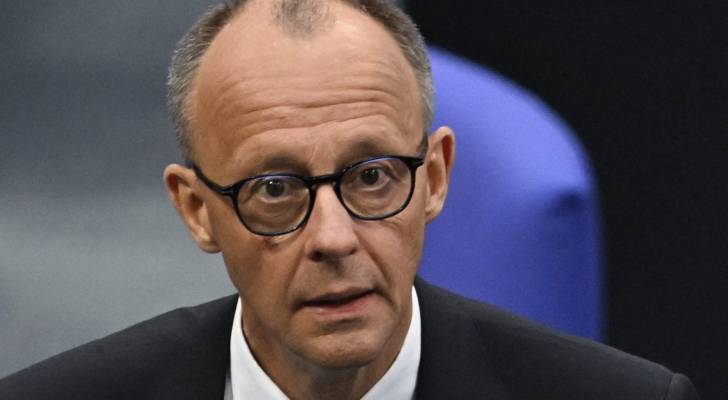Friedrich Merz (Credit: AFP)
Friedrich Merz fails to be elected as German chancellor in first ballot
German conservative leader Friedrich Merz, 69, suffered a political setback on Tuesday after falling short of the parliamentary majority required to secure the chancellorship in the initial round of voting in the Bundestag.
Merz, head of the Christian Democratic Union (CDU) and Christian Social Union (CSU) alliance, secured 310 votes in the 630-seat chamber—six votes shy of the absolute majority needed. A total of 307 lawmakers voted against him, while three abstained, one ballot was declared invalid, and nine members were absent.
Though his CDU/CSU bloc, along with its coalition partner the Social Democrats (SPD), holds 328 seats, the result caught observers off guard and signaled internal fractures or dissent within the alliance. The outcome now forces two additional rounds of voting, with a simple majority sufficing in the third.
The far-right Alternative for Germany (AfD) party, now the largest opposition force in parliament after winning over 20 percent of the vote in February’s elections, celebrated the result with loud cheers. Their recent designation as a “right-wing extremist” group by Germany’s domestic intelligence service has fueled both domestic tensions and international controversy.
Merz is seeking to succeed outgoing SPD Chancellor Olaf Scholz, whose coalition government collapsed in November. If eventually confirmed, Merz would become Germany’s 10th chancellor since World War II.
A longtime figure in Germany’s conservative movement, Merz is known for his pro-business stance but has never held executive government office. He has promised to take a hard line on migration and border security, seeking to reverse Angela Merkel’s open-door legacy.
He has pledged to “revive the economy, curb irregular migration, and strengthen Berlin’s role in Europe” amid shifting global dynamics and domestic unrest. “We live in times of profound change, of profound upheaval ... and of great uncertainty,” Merz said Monday. “And that is why we know that it is our historic obligation to lead this coalition to success.”
With rising support for the AfD and increasing polarization, Merz warned that failing to deliver bold reforms could open the door for far-right dominance in future elections.
The next round of voting is expected in the coming days, with the CDU leader under pressure to unify his ranks and secure the chancellorship before confidence in the coalition erodes further.




